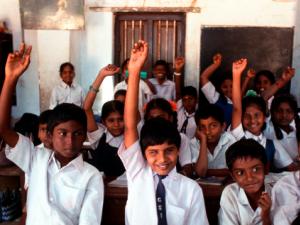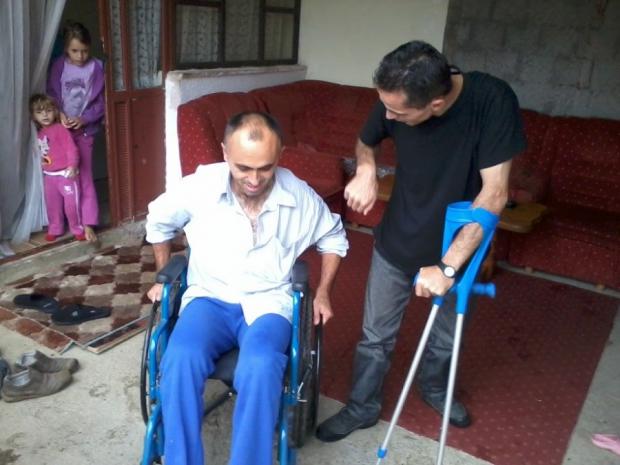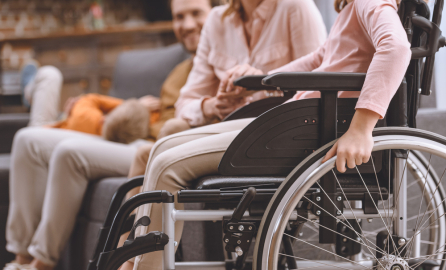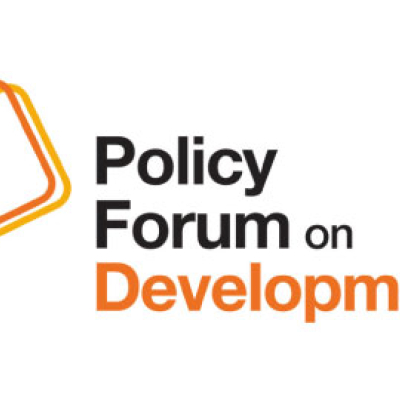The principle of ‘all human rights for all people’ enshrined in the United Nations Convention on the Rights of Persons with Disabilities (CRPD) means just that. Alexander Cote from the International Disability Alliance told staff at the European Commission recently that the fact governments are still discovering how to assist people with intellectual disabilities, for instance, does not mean they can be denied their right to vote, buy a house or have a child.
“People with disabilities have the right to make mistakes, like anybody else,” Mr Cote said last November, during a training session at the Commission’s International Cooperation and Development arm, DEVCO.
The aim of the session was to improve the inclusion of people with disabilities in development work.

Inclusion Equity Access, Photo by CBM Thomas Einberger
According to the 2011 World Report on Disability there are more than one billion people with some form of disability, of whom between 110 and 190 million experience very significant difficulties. At present, 159 countries have signed the UN Convention and 151 have ratified it.
Mr Cote said concerns about the capacity of people with intellectual disabilities, such as Down syndrome, are misplaced.
“You cannot deny the right to somebody because you think he can't [do something]. The thing is, they have the right – what should be done in the environment, what kind of support needs to be there, so people can exercise their rights? People [understand] that if I want to vote and there are stairs and I'm in a wheelchair I cannot go to vote, so they had to put a ramp. Ok, [for example] maybe it's a bit more difficult for me than for some others to understand exactly what's written, but if you explain to me a bit in simple words, I will get it and I will be able to vote.”
The European Union is the first regional body to ratify the Convention and is currently being assessed by the Committee on the Rights of Persons with Disabilities. The EU’s report to the Committee is available here.
By becoming a party to the CRPD, the EU has committed to ensuring that all policies, legislation and programmes for which it has competence — including development policy and programmes— comply with the CRPD’s provisions on disability rights.
When making EU delegations and local infrastructure more accessible for people with disabilities, Mr Cote said awareness easily translates into cost savings.
"If you want to do it later – once you have built your school inaccessible and you want to make it accessible – it will cost you a little bit more money."

Peer Support and home assistance for a family in need, Kosovo / Pic from EU project with Handikos
In some developing countries, people with disabilities and their families may face social stigma. A disability may be wrongly seen as a sign of god’s displeasure, leading the family to hide a son or daughter out of shame or fear.
Elsewhere, the problem is under-resourcing. In India there are less than 1000 qualified sign language interpreters among a population of 1.2 billion people, millions of whom are deaf.
Sophie Beaumont, Social Development Task Manager with the EU in Kosovo, shared her experience of using that country’s eagerness to join the EU as an incentive to improve conditions for people with disabilities.
“As Kosovo has an EU perspective they are interested to listen to us and see how they can improve. Through the EU Progress Report on Kosovo we highlight areas where they are deficient in respecting disability rights and in that sense they feel under some pressure to make some improvements.”
In Kosovo, this has seen the development of a new, more inclusive curriculum and EU-funded schools are designed to have a wheelchair accessible ground floor and wheelchair accessible toilet.
Looking ahead, Mr Cote emphasised the importance of specific data being collected as part of the post-2015 agenda to measure the impact of development assistance for people with disabilities.
Disability was not mentioned in the Millennium Development Goals, and Mr Cote said the result is now a knowledge gap.
"This is really something that with the new Sustainable Development Goals we want to see tackled. We want explicit reference to people with disabilities, their inclusion in different goals such as education, health, poverty reduction and the idea of disaggregating data - we want to know how many children with disabilities are out of school [...] We want to know it in 2015, 2020 and 2025 so that we can measure if yes or no, efforts have been made so that kids can exercise and enjoy their rights to education.”
|
DEVCO (Unit B3) regularly organises training courses on disability and development cooperation for EU staff. For more information check out the Public Group: Disability and Development Network on capacity4dev.eu |
|
For more information about the EU’s actions to support people with disabilities, see: European Disability Strategy 2010-2020 2012 Guidance Note for EU Staff on Disability-Inclusive Development Cooperation |
This collaborative piece was drafted with input from Alexander Cote, Alicia Martin-Diaz and Sophie Beaumont with support from the capacity4dev.eu Coordination Team. Teaser image: Rights and Participation Photo Malawi, Malawi Council for the Handicapped, CBM.




Log in with your EU Login account to post or comment on the platform.